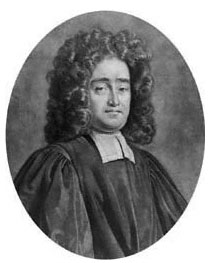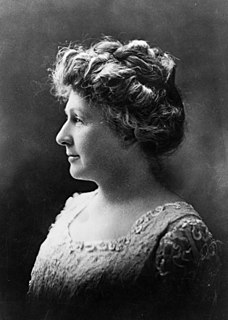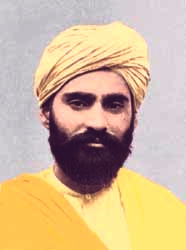A Quote by Charles Horton Cooley
If we divine a discrepancy between a man's words and his character, the whole impression of him becomes broken and painful; he revolts the imagination by his lack of unity, and even the good in him is hardly accepted.
Related Quotes
Some souls think that the Holy Spirit is very far away, far, far, up above. Actually he is, we might say, the divine Person who is most closely present to the creature. He accompanies him everywhere. He penetrates him with himself. He calls him, he protects him. He makes of him his living temple. He defends him. He helps him. He guards him from all his enemies. He is closer to him than his own soul. All the good a soul accomplishes, it carries out under his inspiration, in his light, by his grace and his help.
The Rolling Stones were an inkling towards an appreciation of the unity of music, dance and words. Any of the black R&B people who had a stage show that involved dancing, music and words did the same thing, except that I thought Jagger's words were good, his music was good and his dancing was good. I spoke to him about Blake and tried to get him to sing [William] Blake's The Grey Monk, to use his words as lyrics. He didn't do it. In the end, I did it myself.
A good soldier is a blind, heartless, soulless, murderous machine. He is not a man. His is not a brute, for brutes kill only in self defense. All that is human in him, all that is divine in him, all that constitutes the man has been sworn away when he took the enlistment roll. His mind, his conscience, aye, his very soul, are in the keeping of his officer. No man can fall lower than a soldier-it is a depth beneath which we cannot go.
No man could bring himself to reveal his true character, and, above all, his true limitations as a citizen and a Christian, his true meannesses, his true imbecilities, to his friends, or even to his wife. Honest autobiography is therefore a contradiction in terms: the moment a man considers himself, even in petto, he tries to gild and fresco himself. Thus a man's wife, however realistic her view of him, always flatters him in the end, for the worst she sees in him is appreciably better, by the time she sees it, than what is actually there.
At the solemn moment of death, every man, even when death is sudden, sees the whole of his past life marshalled before him, in its minutest details. For one short instant the personal becomes one with the individual and all-knowing ego. But this instant is enough to show to him the whole chain of causes which have been at work during his life.
The natural inclination of man is to rely solely upon himself and to ignore the purpose of his existence as well as his relationship to God who is his spiritual father. If man will recognize his divine origin, he will then realize his Heavenly Father will not leave him alone to grope in darkness of mind and spirit, but will make available a power to influence him in right paths and into standards of good behavior. The Holy Ghost is that power.
One can't prescribe books, even the best books, to people unless one knows a good deal about each individual person. If a man is keen on reading, I think he ought to open his mind to some older man who knows him and his life, and to take his advice in the matter, and above all, to discuss with him the first books that interest him.
It is thus religion infatuates man from his infancy, fills him with vanity and fanaticism: if he has a heated imagination it drives him on to fury; if he has activity, it makes him a madman, who is frequently as cruel to himself, as he is dangerous and incommodious to others: if, on the contrary, he be phlegmatic or of a slothful habit, he becomes melancholy and is useless to society.
The master in the art of living makes little distinction between his work and his play, his labor and his leisure, his mind and his body, his information and his recreation, his love and his religion. He hardly knows which is which. He simply pursues his vision of excellence at whatever he does, leaving others to decide whether he is working or playing. To him he's always doing both.
Christianity set itself the goal of fulfilling man’s unattainable desires, but for that very reason ignored his attainable desires. By promising man eternal life, it deprived him of temporal life, by teaching him to trust in God’s help it took away his trust in his own powers; by giving him faith in a better life in heaven, it destroyed his faith in a better life on earth and his striving to attain such a life. Christianity gave man what his imagination desires, but for that very reason failed to give him what he really and truly desires.






































